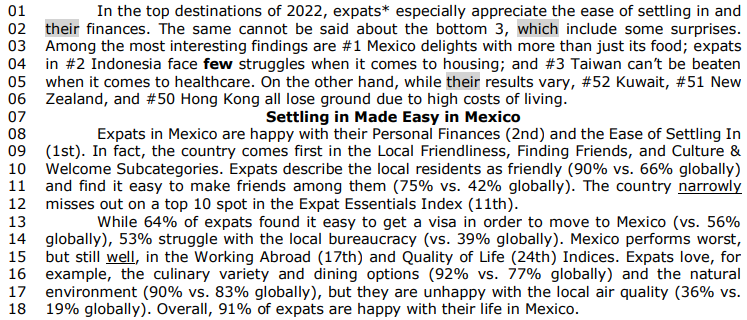Questões de Concurso
Foram encontradas 681 questões
Resolva questões gratuitamente!
Junte-se a mais de 4 milhões de concurseiros!
I – nationalist, example, world, empire, program. II – process, culture, power, product, information. III – decolonization, information, power, education, advice. IV – institution, decolonization, advice, system, model.
B. Considering the classification between countable and uncountable nouns, in which groups do all the words share the same type of nouns?
( ) That building is a piece of art! It’s made mainly of glass. ( ) Can you please hand me those clothes? ( ) I have so much work to do today, I’m already tired. ( ) Have you noticed how many new butters are available at the store? ( ) You know I love coffee!
The correct order of filling the parentheses, from top to bottom, is:

I. The excerpt contains both a comparative and a superlative structure. II. To convey the opposite meaning, it would be grammatically correct to replace the superlative structure with “the less interesting” or “the more boring”. III. The word “its” is a possessive adjective. IV. There would be no significative changes in meaning if the word “among” were replaced by “between” because they are always interchangeable.
Which statements are correct?